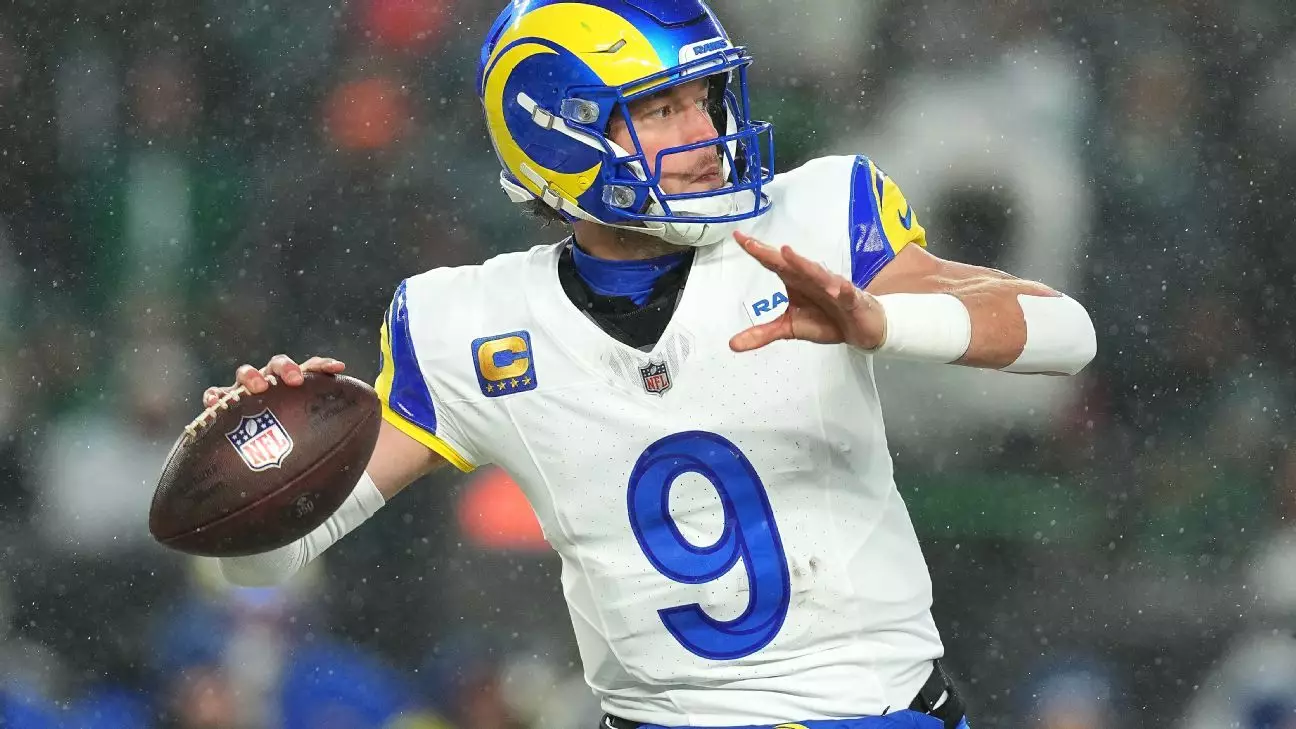In a calculated move reflective of the evolving dynamics in the NFL, the Los Angeles Rams and their veteran quarterback, Matthew Stafford, have come to a new contract agreement. This restructuring, confirmed on Friday, marks a significant moment for both the player and the franchise. The Rams’ decision to permit Stafford’s agent, Jimmy Sexton, to engage in discussions with other teams about the quarterback market signals a willingness to explore alternatives while simultaneously demonstrating commitment to their starting signal-caller.
While negotiating against the backdrop of rumors involving discussions with the Las Vegas Raiders and New York Giants, Stafford’s contract talks underline a crucial transition period for the Rams. This development is not merely a financial adjustment; it’s emblematic of a franchise grappling with the balance of maintaining competitive viability against the broader strategic landscape of the NFL.
The restructured contract is notable not just for preserving Stafford’s tenure with the Rams, but also for the surrounding financial implications. Reports indicate that Stafford had previously signed an extension in March 2022, which included a slate of guaranteed money extending into 2025, but remained devoid of guarantees for the 2026 season. The recent adjustments are indicative of the Rams’ recognition of Stafford’s abilities while also navigating the complexities of roster management and salary cap constraints.
In conjunction with Stafford’s agreement, the Rams secured another vital piece of the offensive line, offensive tackle Alaric Jackson, with a lucrative three-year, $57 million deal featuring considerable guarantees. This dual strategy of retaining key players while fortifying essential positions illustrates the Rams’ commitment to enhancing their offense, which is vital for Stafford to excel.
Earlier in the week, Rams coach Sean McVay emphasized the importance of retaining Stafford as the team’s starting quarterback, describing it as the organization’s “first goal.” However, McVay also acknowledged the layers embedded within personnel decisions, expressing the need for a comprehensive strategy to effectively support Stafford while building a winning team. His sentiments reflect the increasing pressures of delivering results in a league where the competition heightens yearly.
From McVay’s comments, it’s clear the Rams are not just focused on immediate wins but are also considering the long-term viability of their roster. This duality—prioritizing a proven quarterback while simultaneously planning for the future—speaks volumes about how franchises must navigate the business of football today.
Matthew Stafford’s journey through the NFL has been marked by significant highs and lows. After an illustrious twelve seasons with the Detroit Lions, he became an immediate catalyst for change upon joining the Rams in 2021, culminating in a Super Bowl LVI victory in his first season. His proficiency as a quarterback is evidenced by his impressive statistics, including completing 65.8% of his passes for 3,762 yards and producing 20 touchdowns against eight interceptions in the previous season alone.
As he approaches the 60,000 career passing yards milestone, a feat reached by only nine other quarterbacks, the pressure mounts not just to perform but to do so while leading a franchise with Super Bowl aspirations. His knack for rising to the occasion, particularly in high-stakes games, adds to his value and creates a compelling narrative around his position within the team.
With the offseason underway, the Rams will need to maintain momentum built around Stafford’s recent contract restructure. While the Giants are exploring other veteran quarterbacks and the Raiders are considering alternatives such as Russell Wilson and Justin Fields, the Rams must remain focused on their trajectory with Stafford. The ability to keep their star quarterback in Los Angeles not only strengthens their immediate chances of success but also serves to stabilize a franchise that seeks to reclaim its status among the elite in the NFL.
Matthew Stafford’s restructured contract is more than just a financial commitment; it represents a strategic move laden with implications for the Rams’ future. As Stafford continues to be a pivotal figure in the team’s quest for success, the organization must ensure it tasks him with the resources necessary to thrive. The blend of short-term performance and long-term planning will define not only Stafford’s legacy but also the Rams’ potential for sustained excellence in the turbulent waters of professional football.

